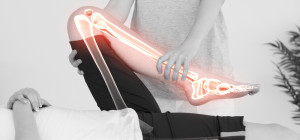 Today’s households are rarely like those seen in the 70’s and 80’s television shows many of us grew up watching. Homes with younger families usually require just first aid kits and over the counter-type medicine. But today’s “sandwich generation” of households raising kids and taking care of a senior need more specialized supplies that are not usually found in the average drugstore.
Today’s households are rarely like those seen in the 70’s and 80’s television shows many of us grew up watching. Homes with younger families usually require just first aid kits and over the counter-type medicine. But today’s “sandwich generation” of households raising kids and taking care of a senior need more specialized supplies that are not usually found in the average drugstore.
If you manage a household that includes an aging parent, grand parent or loved one suffering from age-related or physical impairment, you might want to consult a medical supply expert to determine which products are a necessity to make your home safer and more accessible for them. Here are some of the essentials recommended by medical professionals and therapists:
- Wheelchairs and Transport Chairs: Mobility-impaired patients can often be liberated to move about the home and travel outside it by using a wheelchair or transport chair. Unlike the wheelchairs you may have experienced at a hospital, today’s models designed for the home are made of light aluminum alloy to make them easy to maneuver, fold for travel, and conveniently store. Keep in mind that wheelchairs can be powered by the user if they have the upper body strength and use of their arms or pushed by a caregiver, while transport chairs are designed for quick trips and errands or transferring short distances with the user being pushed by an assisting caregiver.
- Walker or Rollator: For those who have leg strength and are still mobile, but just need additional assistance with balance while walking, a walker or rollator will be your answer to safe navigation within and outside the home. Foldable walkers are light weight and feature four legs to provide balance. Walkers usually come with rubber non-slip feet, but are also available with two wheels on the front legs for users who may not have enough upper body strength to lift the walker in stride. Rollators are four-wheel mobility assists that are easily moved and turned, but safe with easy grip and lockable hand brakes. Most rollator models additionally feature a padded seat for resting with a convenient storage compartment underneath. Like walkers, they are easily foldable for quick and convenient transporting in the car or storing out of the way.
- Adjustable Bed: A bed that adjusts the head and feet according to preference can provide the utmost comfort while sleeping—especially for someone suffering from breathing disorders, acid reflux, vital hernias, swollen legs and feet, Phlebitis, varicose veins, back pain and more. While there are numerous hospital beds on the market that are suited for the home, there are many available options that are designed with all the therapeutic advantages but without the “hospital-look.”
- Alternating Pressure Mattresses: Complementing an adjustable bed, an alternating pressure mattress or pad overlay will redistribute pressure on the body, helping patients who spend longer periods of time in bed or are unable to reposition themselves, avoid painful and dangerous pressure ulcers, commonly referred to as “bed sores.”
- Shower Chair or Bath Bench: Studies have shown that the area of the home where most accidents occur is the bathroom. Shower chairs and bath benches make it easier for seniors with balance concerns or diminished strength to shower or bathe. These are an extremely effective and critical helper when it comes to preventing dangerous falls in the bathroom.
- Raised Toilet Seat: These bathroom assistant devices proved a safer way of using the toilet by reducing the effort needed to lower onto, and raise from the commode seat. In addition to the height increase, raised toilet seats are also available with raised padded arms for better balance and benefit of using the arms to assist in raising and lowering.
- Safety rails: Rails and grab bars provide added security in and around the home, particularly the bedroom and bathroom. These are easy to install and are known to be most helpful in those unpredictable moments when a quick grab of something secure is all it takes to avoid a dangerous fall.
- Incontinence Products: Incontinence is nothing to be ashamed of. Products like protective underwear and underpads are a vital aid when it comes to bladder and bowel control issues. Not only do they help you maintain a more sanitary home environment, they provide confidence in seniors who may be reluctant to remain active out of fear of an incontinence accident occurring while out and about.
- Daily Living Aids: Dressing aids for putting on sock and shoes, hearing helpers, eating and drinking aids, and medication organizers are just some of the everyday necessities that can enhance a senior’s independence and accessibility at home.
- Gait and Transfer Belts: This simple but ingenious invention that wraps around the patient’s waist to help caregivers safely transfer patients using their own strength and balance from one spot to another, or from sitting to standing positions.
- Oxygen Concentrators: Forget the expense and hassle of cylinder and liquid oxygen deliveries and reorders. The best method for oxygen therapy these days is from a personal oxygen concentrator. These devices filter the air from your surrounding room, and concentrate it for controlled and monitored delivery of fresh oxygen throughout the day. Powered by plugging into a normal electrical outlet, oxygen concentrators are economical to operate and can save a tremendous amount of money compared to tank rental options.
- Diagnostic Monitors: Professional-grade diagnostic instruments are needed to monitor the health of patients. These include blood pressure monitors, stethoscopes, cholesterol monitors, otoscopes, scales and thermometers.
- Wound Care Supplies: Gauze wraps and bandages of different sizes, skin care ointments, medicated wound dressings, and medical tape are just a few of the supplies that should always be found in your home’s medical kit. Wounds from minor accidents, as well as those from surgery, need to be cleaned and covered per the guidance of a physician to facilitate faster healing and minimize the risk of infection.
- Personal hygiene products: Personal hygiene is essential to prevent illnesses and to keep patients feeling fresh and confident in themselves. Products that are essential for the home are shampoo, body wash, soaps, hand sanitizers, lotions and moisturizers for skin health, toothpaste and conveniently transportable cleaning basins. Disinfecting wipes and antibacterial cleansers also help prevent the spread of germs both in the home and out and about.
These are just some of the medical supplies necessary for home health care. By outfitting your home with these essentials, you ensure the health and basic needs of your loved one, providing them with a better quality of life.







